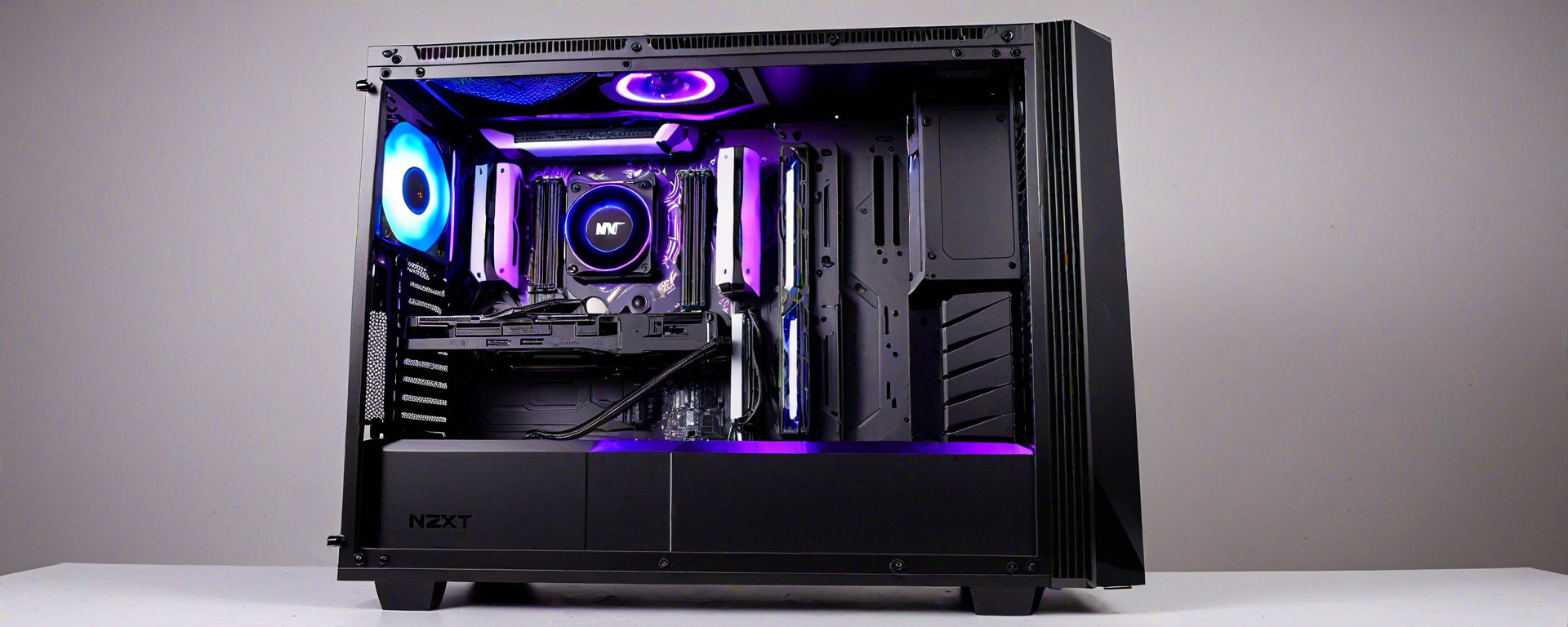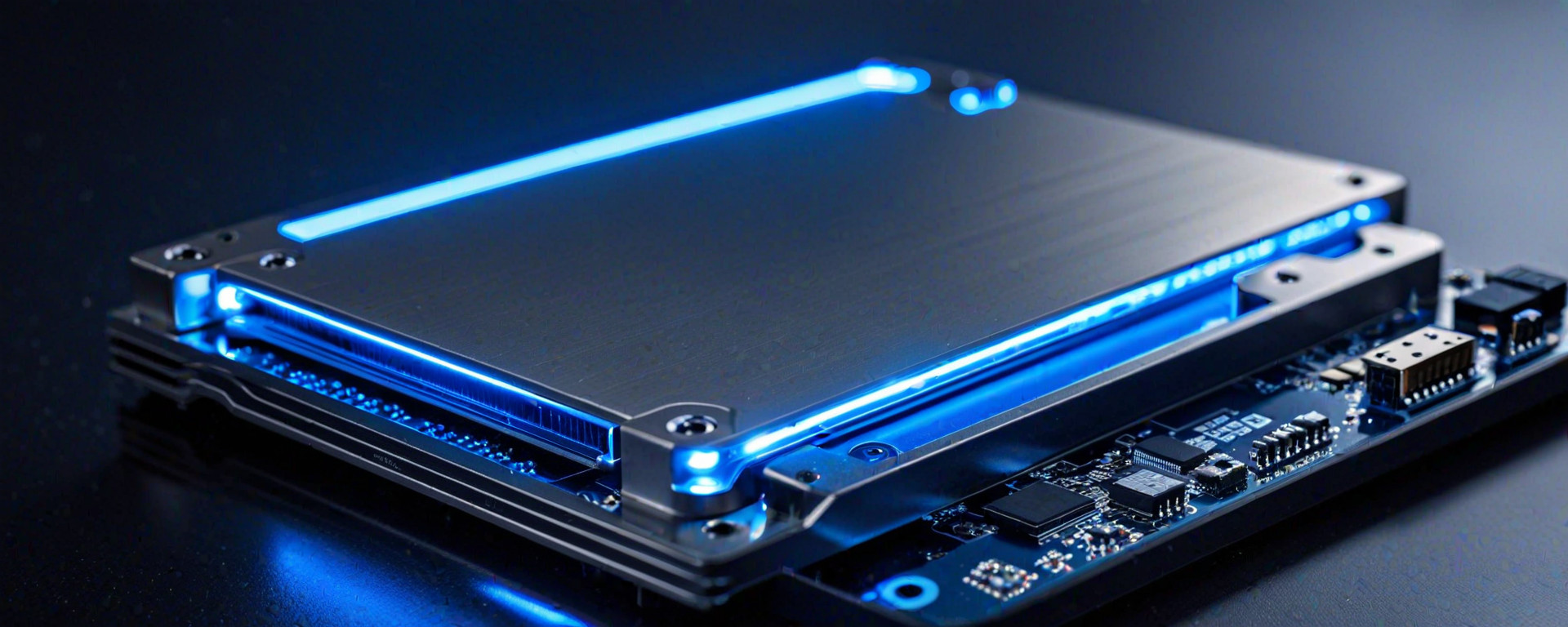Introduction
The choice of a PC case may seem trivial to those unfamiliar with the intricacies of building a computer from scratch. However, selecting the right enclosure is crucial for ensuring optimal performance, aesthetics, and ease of use. A well-designed case not only houses your components securely but also facilitates efficient cooling and cable management. This guide aims to provide an in-depth look at how to choose the best PC case for your needs.
Whether you're a seasoned builder or a beginner stepping into the world of custom computer builds, this article will cover all aspects of selecting a suitable enclosure. We'll delve into various factors such as form factor compatibility, cooling options, storage capacity, and overall build quality to help you make an informed decision.
Why Choosing the Right PC Case Matters
The PC case is more than just a protective shell for your components; it's the backbone of your system. A good case ensures that all parts fit together seamlessly while also providing ample space for future upgrades and modifications. Moreover, an efficient cooling setup can prevent overheating issues and prolong the lifespan of your hardware.
Form Factor Compatibility
The first step in choosing a PC case is determining its form factor compatibility with your motherboard. The most common form factors include ATX, Micro-ATX (mATX), Mini-ITX, and E-ATX, among others. Each form factor has specific dimensions that determine the size and shape of the case.
Understanding Form Factors
- ATX: The standard for full-sized desktops, offering plenty of room for expansion slots and additional components.
- mATX: Smaller than ATX but still compatible with many motherboards, ideal for compact builds or small form factor cases.
- Mini-ITX: The smallest common form factor, designed for ultra-compact systems such as media centers and HTPCs (Home Theater PCs).
- E-ATX: Larger than ATX, suitable for high-end setups requiring additional space for components.
Selecting the correct form factor is essential to ensure that your motherboard fits properly within the case. Additionally, consider the type of case you are building (tower, mid-tower, mini tower) and its dimensions relative to your chosen form factor.
Cooling Options
Effective cooling is crucial for maintaining performance and prolonging the lifespan of your components. A poorly ventilated PC can lead to overheating, which in turn causes hardware failure or throttling (reduced performance). Here are some factors to consider when selecting a case with adequate cooling:
Airflow Design
Look for cases that offer proper airflow, typically through strategically placed intake and exhaust fans. Most modern cases come equipped with pre-installed fans, but you can also purchase additional units or even water-cooling solutions.
- Predominant Airflow: Positive pressure (more air coming in than going out) is generally preferred for better cooling efficiency.
- Cable Management: Proper cable routing minimizes obstruction of airflow and reduces dust accumulation, contributing to improved thermal performance.
Case Fans and Water Cooling
The majority of cases support standard 120mm or 140mm fans. However, some models are designed for high-end cooling solutions like radiators and custom water-cooling loops:
- Liquid Cooled Radiators: These often require additional space in the case, so ensure that your chosen enclosure can accommodate them.
- Direct Exhaust Fans: Many cases feature dedicated exhaust fans at the rear or top to vent hot air away from critical components.
Storage Capacity and Expansion Slots
The number of storage drives (HDDs/SDDs) you can install along with expansion slots for additional cards is another important consideration when choosing a PC case. Ensure that your selected enclosure has enough space to accommodate all necessary components without overcrowding.
Drive Bays and Expansion Slots
- Drive Bay Types: Consider whether you need 5.25-inch bays for optical drives or 3.5-inch/2.5-inch drive cages for storage devices.
- Expansion Slot Compatibility: Make sure that the case has enough PCIe slots (x16, x8, etc.) to accommodate graphics cards and other expansion boards.
Modularity and Flexibility
Select cases that offer a high degree of modularity, allowing you to easily add or remove components as needed. Modular designs often facilitate easier cable management and better airflow:
- Rackable Mounts: Some cases come with modular drive mounts for easy installation/removal.
- Cable Pass-through Holes: Look for cases that provide ample holes or pass-through points to route cables neatly without cluttering the interior space.
Aesthetics and Build Quality
The appearance of your PC case is often just as important as its functional features. A well-designed enclosure not only looks good but also contributes positively to the overall ambiance of your workspace or gaming setup:
Material Choices
- Metal vs Plastic: Metal cases tend to be more durable and provide better shielding against electromagnetic interference (EMI).
- Solid vs Mesh Panels: Choose between solid panels for a sleek look or mesh front panels that improve airflow.
Color Options and LED Lighting
Metallic finishes, brushed aluminum surfaces, matte black exteriors—there are countless choices when it comes to the appearance of your PC case. Additionally, consider whether you want built-in RGB lighting or support for external LEDs:
- Glowing Colors: LED strips and addressable RGB fans can give your build a vibrant glow.
- Silent Operation: Look for cases with muted colors if noise is a concern.
Final Considerations: Budget, Brand, and Reviews
When choosing the best PC case, it's essential to balance your budget against quality and features. High-end models may offer superior build materials, advanced cooling solutions, and improved aesthetics but come with a higher price tag.
Budget Allocation
- Prioritize Cooling: Spending more on high-quality fans or liquid cooling might be worth the investment for long-term performance stability.
- Finding Balance: Allocate funds wisely by considering which features are most important to you and your build requirements.
Brand Reputation and Customer Reviews
Researching customer feedback can provide valuable insights into a case's reliability, ease of assembly, and overall value. Brands like NZXT, Fractal Design, Lian Li, and Phanteks are renowned for their quality products:
- Check Online Forums: Websites such as Reddit’s r/buildapc or Tom's Hardware often have threads dedicated to case reviews.
- Manufacturer Warranties: Ensure that the chosen brand offers adequate warranty coverage in case of defects.
Conclusion: Your Ultimate Guide to PC Cases
In conclusion, choosing the right PC case is an essential step in building a reliable and efficient computer system. By considering factors such as form factor compatibility, cooling options, storage capacity, expansion slots, aesthetics, build quality, budget constraints, brand reputation, and customer reviews, you can find the perfect enclosure for your needs.
Whether you're aiming for high performance with advanced cooling solutions or prioritizing compact size and ease of use in a small form factor case, this guide provides comprehensive insights to help you make an informed decision. Happy building!
Additional Tips and FAQs
Tips for First-Time Builders
- Start Small: If you're new to building PCs, consider starting with a Micro-ATX or Mini-ITX form factor to simplify the process.
- Practice Cable Management: Properly routing cables can significantly improve airflow and aesthetics.
- Invest in Quality Tools: Good quality tools such as screwdrivers, thermal paste applicators, and cable ties will make your build easier and more efficient.
Frequently Asked Questions (FAQs)
Q: What is the difference between an ATX and a Micro-ATX case?
A: An ATX case supports larger motherboards with full-sized expansion slots, while a Micro-ATX case is more compact and suitable for smaller builds. Micro-ATX cases typically offer fewer drive bays and expansion slots but still provide enough space for most users.
Q: Can I use a Mini-ITX motherboard in an ATX case?
A: Yes, you can install a Mini-ITX motherboard in an ATX case. However, ensure that the mounting holes on the motherboard align with those on the backplate of the case.
Q: How do I choose between plastic and metal cases?
A: Metal cases are generally more durable and provide better EMI shielding but can be heavier. Plastic cases tend to be lighter, cheaper, and come in a variety of colors and designs.
Q: What should I look for when choosing between solid panels and mesh front panels?
A: Solid panels offer a cleaner appearance and better dust protection but may restrict airflow. Mesh front panels improve ventilation but can accumulate more dust over time.
Q: How important is warranty coverage when selecting a PC case?
A: Warranty coverage ensures that you have support in case of defects or malfunctions, providing peace of mind and potentially saving money on repairs or replacements.
Sources
- Tom's Hardware: Best PC Cases Review
- PC Gamer: The Best PC Cases for 2023
- Newegg: PC Build Guides and Recommendations
By following these tips, addressing common questions, and referencing reliable sources, you'll be well-prepared to select the perfect PC case for your build. Happy building!
If you have any further queries or need more detailed information on specific aspects of PC cases, feel free to reach out.
Thank you for choosing to build your custom PC with us. We're here to help every step of the way!
``` This comprehensive guide provides detailed advice on selecting a suitable PC case, covering all major aspects from form factor compatibility and cooling options to aesthetic preferences and brand considerations. It also includes practical tips for first-time builders and addresses common questions through FAQs.








